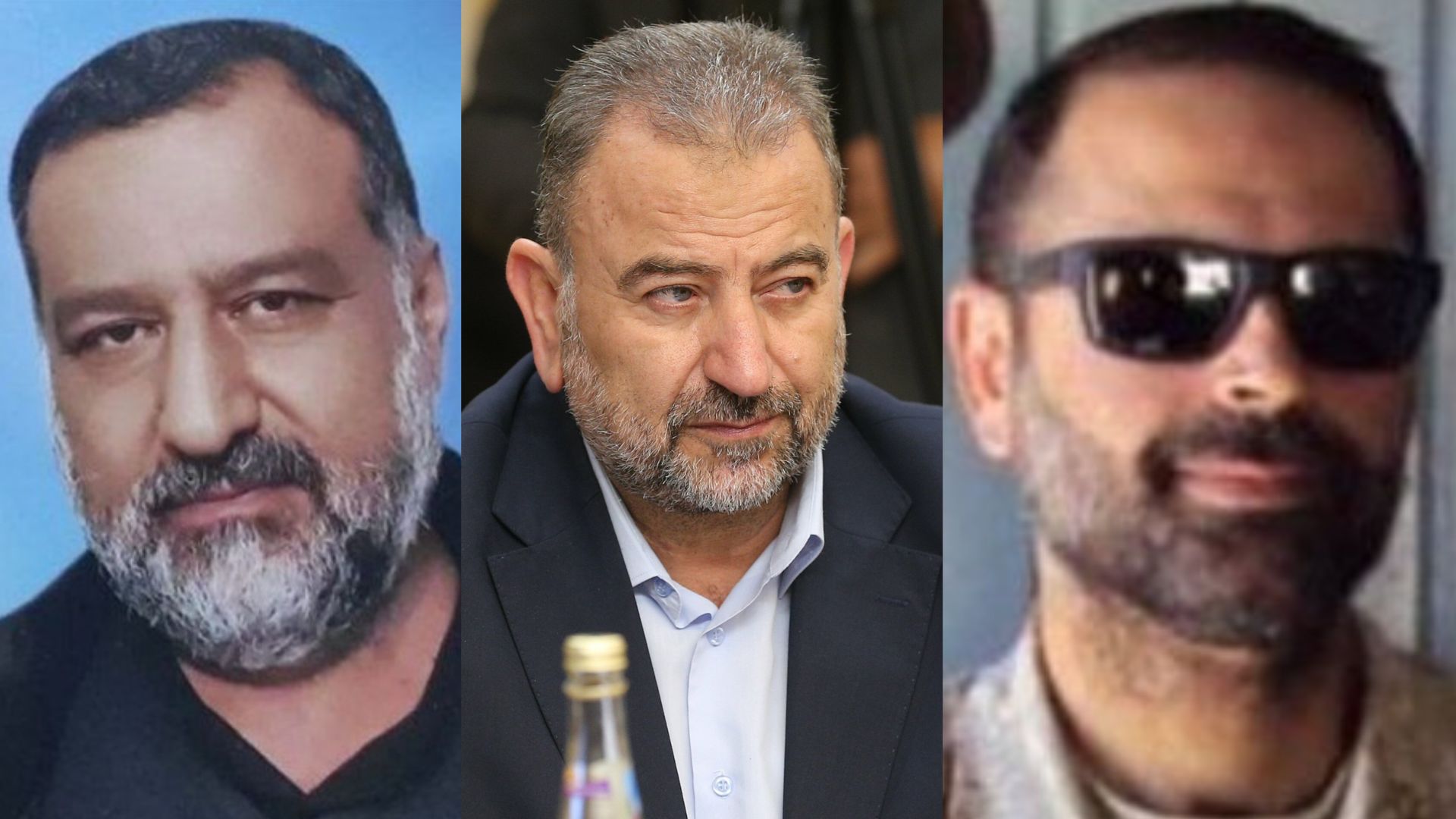US pressure on Israel to switch gears and focus on targeted precision strikes and killings, rather than indiscriminate bombing of the Gaza Strip, is potentially heightening the risk of the war escalating into a regional bust-up and expanding beyond the Middle East.
The heightened risk suggests US efforts to allow Israel to continue attempting to destroy Hamas while minimizing civilian Palestinian casualties may backfire. This would further underline that a ceasefire is the only way of preventing an escalation, protecting innocent lives and securing the release of Hamas-held hostages.
Disputes between allies
Despite the risk, US Secretary of State Antony Blinken, on his fifth visit to Tel Aviv since the war began, reaffirmed “Israel’s right to prevent another October 7 from occurring” in talks with Israeli Prime Minister Benjamin Netanyahu. However, he “stressed the importance of avoiding civilian harm, protecting civilian infrastructure and ensuring the distribution of humanitarian assistance throughout Gaza.” Blinken was referring to Hamas’ October 7, 2023, attack on Israel that sparked the Israeli assault on Gaza.
His reference to infrastructure constituted the United States’ first public criticism of Israeli attacks on Gazan hospitals, schools, and other civilian infrastructure. Signaling differences with Blinken, Netanyahu’s office did not issue a readout after the meeting.
Even so, US reluctance to go beyond verbal pressure, by threatening consequences if Israel fails to heed US advice, may stem from a belief that America’s leverage on Israel has diminished over time in economic and political terms. In past decades, US financial support amounted to a significant chunk of Israel’s budget. Now, the US’s annual $3.8 billion contribution is worth less than 1% of Israel’s over-half-trillion-dollar GDP. Moreover, Israel today produces many of its most essential weapons domestically, making it less dependent on US arms sales.
In addition, Israel concluded in 1991 that it could no longer blindly rely on US protection after the United States did not come to its aid when Iraq fired Scud missiles at the Jewish state during the Gulf war. Despite remaining dependent on US vetoes in the United Nations Security Council and military cooperation, Israel worked to increase its margin of autonomy, much like Gulf states did three decades later after the United States failed to respond to Iranian-inspired attacks on their critical infrastructure in 2019 and 2020.
Israel’s campaign of targeted killings
Nevertheless, acting on seemingly accurate and up-to-the-minute detailed intelligence, Israel appears to have responded to US pressure by carrying out a series of targeted killings, including operatives of Hezbollah, the Iranian-backed Lebanese Shiite militia, an Iranian Revolutionary Guard commander in Syria and a top Hamas official in Beirut.
On Januar 9, Israeli forces targeted a car in southern Lebanon carrying three Hezbollah operatives north of the narrow band along the Lebanese-Israeli border, to which hostilities with the Lebanese group have so far been contained. The attack, the second in 24 hours, occurred as Blinken discussed Israeli military strategy with Netanyahu and members of his war cabinet.
Israel targeted a second car, hours after the attack, close to the home of Wassim Al-Tawil, a senior Hezbollah commander killed together with another of the group’s fighters in a drone attack on January 8, as they traveled by car north of the band. The car was targeted as Al-Tawil was laid to rest.
“We’re targeting Hezbollah operatives, infrastructure, and systems they’ve set up to deter Israel,” said newly appointed Israeli Foreign Minister Israel Katz.
The United States has been pushing Israel to scale back its bombing of Gaza — which has killed more than 24,000 people, a majority innocent Palestinian civilians — to withdraw troops from the Strip, and focus on militant Palestinian targets.
The killings of senior Hezbollah, Hamas and Iranian commanders threaten to push Iranian-supported forces to retaliate in ways that could escalate hostilities beyond Gaza and the so far narrow Israel–Lebanese border band. In an indication of how hostilities could escalate, Hezbollah attacked an Israeli air traffic control base south of the band on January 8 in retaliation for last week’s assassination in Beirut of a senior Hamas official, Salah al Arouri.
The fact that a majority of Israel’s targeted killings have been Hezbollah operatives likely has much to do with US, French and German efforts to prevent an escalation of exchanges between Israel and the Lebanese group and negotiate a definitive demarcation of the two countries’ borders. Hezbollah has rejected Israeli demands to withdraw to a line north of the border beyond the Litani River. Hezbollah has also said it would agree to Lebanese government border demarcation talks only after Israel halts its assault on Gaza and accepts a permanent ceasefire.
Israel has threatened to militarily push Hezbollah back to the Litani if diplomatic efforts fail. On a visit this week to Israeli troops on the Lebanese border, Netanyahu warned, “If Hezbollah chooses to start an all-out war then it will … turn Beirut and southern Lebanon, not far from here, into Gaza and Khan Younis.”
The Israeli attacks on Hezbollah appear designed to force the group to choose between withdrawing and sparking an all-out war that bankrupt Lebanon cannot afford and many Lebanese do not want. Hezbollah leader Hasan Nasrallah has indicated that he does not seek an escalation of hostilities but that his group was prepared if Israel opted for a full-fledged conflagration.
Israel’s apparent focus on Hezbollah operatives may also be because of its inability so far to take out Hamas’ most senior Gaza leaders, including Yahya Sinwar, more than three months into the war.
Last week, David Barnea, the head of Mossad, Israel’s foreign intelligence service vowed to hunt down every Hamas member involved in the group’s October 7 attack on Israel, no matter where they are. Barnea compared the manhunt to Israel’s pursuit of Palestinian Black September after it attacked the Israeli team at the 1972 Munich Olympics and killed 11 athletes.
Last month, Ronen Bar, chief of Shin Bet, Israel’s domestic security agency, said Israel would hunt down Hamas in Lebanon, Turkey, and Qatar even if it took years. “This is our Munich. We will do this everywhere, in Gaza, in the West Bank, in Lebanon, in Turkey, in Qatar. It will take a few years, but we will be there to do it,” Bar said.
While Hamas has yet to retaliate for Al-Arouri’s killing, a senior official warned that it may expand the war beyond Israel and Palestine if the United States continued to support Israel. “The West in general, and the US government in particular, need to reconsider their position because this will have consequences … If the US insists on its position, our entire nation will view it, and treat it, as an enemy … This conflict could go beyond Palestine’s borders, and expand in scope,” said Hamas official Sami Abu Zuhri.
Mr. Abu Zuhri’s warning coincided with a call by the Islamic State for lone-wolf attacks on civilian targets in Europe and the United States, including churches and synagogues.
[The Turbulent World first published this piece.]
[Anton Schauble edited this piece.]
The views expressed in this article are the author’s own and do not necessarily reflect Fair Observer’s editorial policy.
Support Fair Observer
We rely on your support for our independence, diversity and quality.
For more than 10 years, Fair Observer has been free, fair and independent. No billionaire owns us, no advertisers control us. We are a reader-supported nonprofit. Unlike many other publications, we keep our content free for readers regardless of where they live or whether they can afford to pay. We have no paywalls and no ads.
In the post-truth era of fake news, echo chambers and filter bubbles, we publish a plurality of perspectives from around the world. Anyone can publish with us, but everyone goes through a rigorous editorial process. So, you get fact-checked, well-reasoned content instead of noise.
We publish 3,000+ voices from 90+ countries. We also conduct education and training programs
on subjects ranging from digital media and journalism to writing and critical thinking. This
doesn’t come cheap. Servers, editors, trainers and web developers cost
money.
Please consider supporting us on a regular basis as a recurring donor or a
sustaining member.
Will you support FO’s journalism?
We rely on your support for our independence, diversity and quality.










Comment